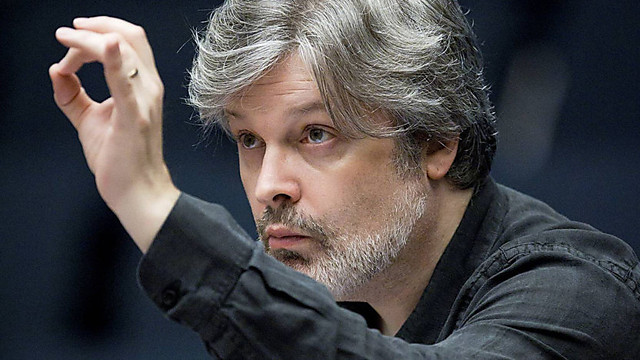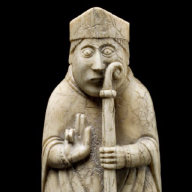看到一篇花邊報道,但對熱愛音樂的信友來說是個令人悲哀的消息。

英國作曲家兼指揮 麥美倫爵士 (Sir James Macmillan) 在最近的一篇 文章 說,他放棄再寫禮儀音樂。他說:
This has sometimes led to tensions. The professionalising of music in church is sometimes regarded with suspicion by clerics and laypeople dedicated to the “modernising” and “democratisation” of religious idea and practice, nervous of the alienating resonances of old-fashioned, hierarchical “elitism”. The churches went through their 1960s revolutions too, and in some things these were necessary and liberating. The musical fallout from these has been problematic, though, especially to those involved in maintaining high standards.
This has been especially dire in the Catholic Church, where deliberately misapplied readings of “the spirit of Vatican II” has turned much of the musical practice in liturgy into a pitiful laughing stock. Anglicans will know what the problem is too — those aisle-dancing and numbskull jogging for Jesus choruses, maudlin sentimental dirges, faux American folk music and cod-Celticness. The American musicologist Thomas Day described this kind of liturgy as “a diet of romantic marshmallows indigestibly combined with stuff that grabs you by the scruff of the neck and shakes you into submission with its social message”.
大意就是說,一些志於「現代化」及「民主化」宗教理念及習俗的神職及平信徒,對教會內的專業化音樂抱有質疑態度,認為這是古舊的精英主義。這在公教尤其嚴重,因為按「梵二精神」的錯誤閱讀使很多地方的音樂變得「可憐可笑」。
他續道:
The liturgical “progressives” who have created this have been at loggerheads for decades with the musicians of the Church, whom they accuse unfairly of being reactionary and Tridentinist. I know this as I have the scars to prove it. During the papal visit to the UK in 2010 there were countless battles behind the scenes about the nature of the public liturgies and their musical content and style. For example, the bishops asked me to write a new congregational mass for the open-air liturgies, and a powerful faction fought very hard for this not to happen. It was said that a classical “art” composer could not have the grass-roots parish experience and “pastoral insight” necessary for — etc, etc.
I’ve given up the liturgy wars since. I stepped back from parish music involvement and now just sit in the pews, suffering with the rest of the Catholic faithful. I still love writing for choirs, though, and from the sidelines I encourage the application of Gregorian chant in simple, vernacular ways, as well as in Latin. The Orthodox chant I heard in Romania in September was astonishingly beautiful. Perhaps there is a way of incorporating it into choral music for the liturgy here too?
禮儀「進步派」一直不公平地對待那些他們認為是「守舊派」及「特倫多派」的音樂家,他自己深受其害。他舉例說,2010年教宗訪英,無數的鬥爭在背後發生。當地主教邀請他為一台露天彌撒編寫新的彌撒曲,但另一勢力團體極力反對其成事,說古典藝術的作曲家沒有草根堂區經驗、缺乏牧民眼光云云……
最後麥美倫爵士說:他也放棄這樣的禮儀之戰。他已不再參與堂區音樂,只是坐在會眾當中,跟其餘的公教信徒一起受苦。他鼓勵簡單的額我略調音樂——拉丁或本地語。
麥美倫爵士的經驗是否符合我們的堂區經驗?渴望推廣古典音樂或傳統額我略調卻被打成「守舊派」?梵蒂岡第二次大公會議、以及新彌撒是如何說教會音樂呢?
梵二《禮儀憲章》:
116 教會以額俄略曲為羅馬禮儀的本有歌曲,所以在禮儀行為中,如果其他歌曲條件相等,則額俄略曲佔優先。 其他種類的聖樂,尤其是複調樂曲,並不禁止在舉行禮儀時使用,不過必須按照第30節,符合禮儀行為的精神。
《羅馬彌撒經書總論》:
40. 所以應依照各民族的稟賦及各禮儀團體的能力,在彌撒慶典中盡量歌唱是極其重要的。雖然不必常唱所有可歌唱的經文(例如在平日彌撒中),但在主日或當守的法定慶節,應極力避免在彌撒慶典中完全缺少禮儀服務人員及會眾的歌唱。 但在選擇實際要歌唱的經文時,應將較重要的,特別是由主祭、執事或讀經員歌唱而由會眾答應的部分,或由主祭與會眾一同歌唱的部分,列為優先。
41. 額我略歌詠( cantus gregorianus)既是羅馬禮儀的固有部分,因此,應在平等中享有特殊地位。其餘各類聖樂,尤其是複曲調聖樂,只要符合禮儀精神,並有助於信友參與,均不應禁止。 由於不同國籍的信友共聚一堂的機會正日益增加,謹望大家至少能以拉丁文及簡單的曲調,一同詠唱「彌撒常用經文」( Ordinarium Missae)的某些部分,特別是信經和天主經。

